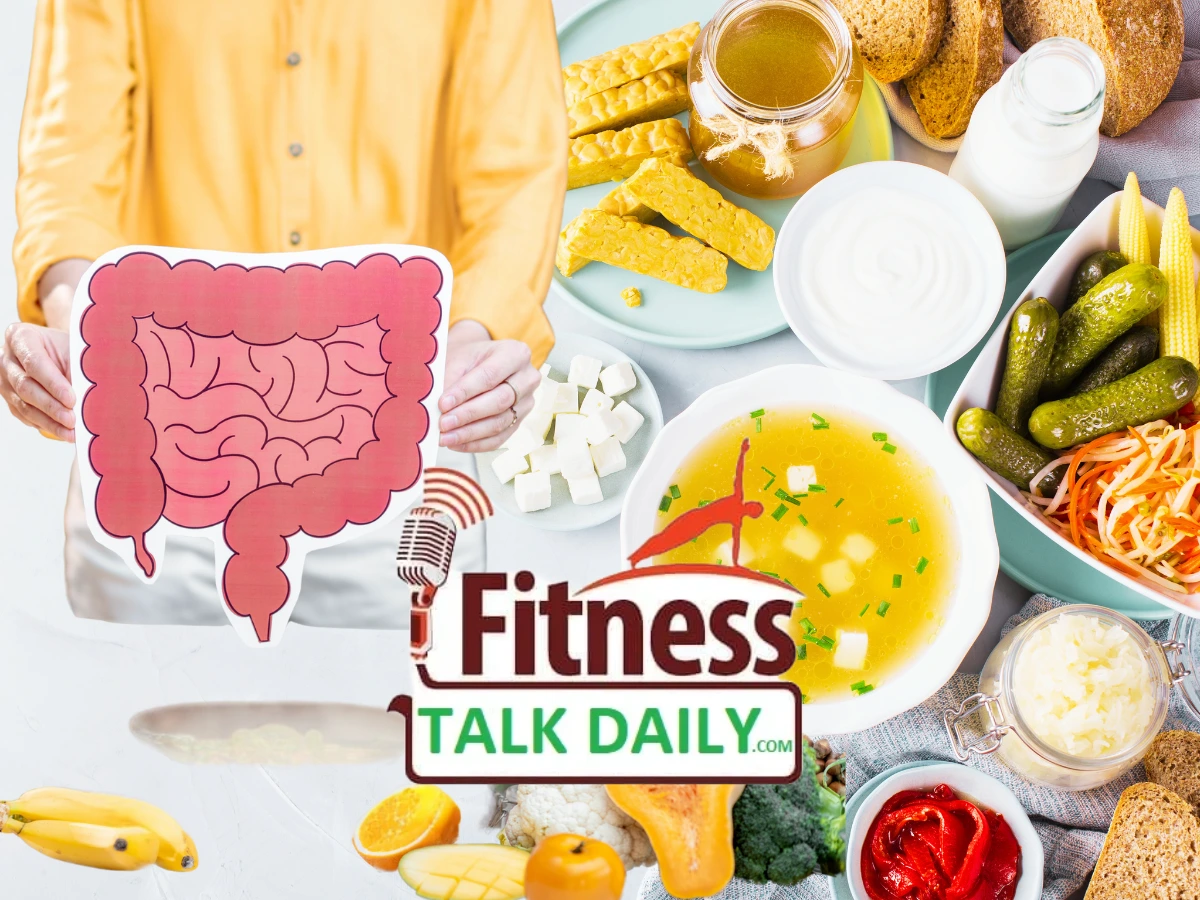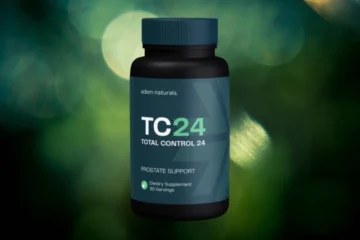Why Your Gut Health Deserves More Credit?
When you think about your gut, you probably picture a system that digests food and moves things along. Pretty normal, right? But here’s the truth: your gut does a whole lot more than just break down what you eat. It’s tightly linked to your mood, your immune system, your
energy levels, pretty much your entire well-being. Lately, gut health has gone from a wellness buzzword to a real movement. And for good
reason. When your gut’s out of balance, it doesn’t just stay in your stomach; you can feel it everywhere. Brain fog. Skin issues. Low mood. Even trouble sleeping. But here’s the good news: you don’t need fancy supplements or complicated diets to take Care of your gut. You just need the right foods, functional foods that work behind the scenes to nourish you deeply.
What Exactly Is Gut Health?
When people throw around the term gut health, they’re mostly talking about how balancedand well-functioning your gastrointestinal tract, especially your gut microbiome, is.
Meet Your Microbiome
Your gut microbiome is a bustling community of trillions of bacteria, viruses, and fungi living in your intestines. While that might sound a little unsettling, most of them are there
to help you. They:
• Break down complex foods
• Help you absorb nutrients
• Produce vitamins like B12 and K
• Support your immune system
• Protect you from harmful invaders
• Even chat with your brain through the gut-brain axis
When everything’s in balance, a state called eubiosis, your body feels it in the best way. But When your gut microbiome gets disrupted, dysbiosis, that’s when symptoms start showing up in places you might not even expect.
How to Tell If Your Gut Health Is Out of Whack?
You don’t need lab tests or fancy equipment to get a clue that your gut might need some attention. Here are some signs it’s asking for help:
•Bloating or gas that seems random or constant
•Bathroom habits that are all over the place
•Suddenly reacting to foods you used to tolerate
•Feeling wiped out or mentally fuzzy
•Catching every cold that comes your way
•Anxiety, mood swings, or unexplained sadness
•Skin acting up with rashes, acne, or eczema
Functional Foods: Your Gut’s Best Friends
What Are They, Anyway?
Functional foods go beyond simply feeding you. They deliver extra perks like boosting your immunity, reducing inflammation, and most importantly, nourishing your gut microbiome. When it comes to gut health, the two categories you want to focus on are:
•Probiotic foods are filled with live good bacteria
•Prebiotic foods are filled with fibers that feed those good bacteria. Both are important. One brings in the troops, and the other keeps them strong.
Probiotics: Building Your Gut’s Defense Team Probiotics are live microorganisms that help populate your gut with beneficial bacteria. They work by restoring balance, especially after stress, illness, or antibiotics take a toll.
Where to find them?
•Yogurt (plain, with live and active cultures)
•Kefir (a tart, drinkable yogurt alternative)
•Sauerkraut (make sure it’s raw and unpasteurized)
•Kimchi (fermented Korean veggies with a spicy kick)
•Miso (fermented soybean paste, perfect for soups)
•Tempeh (firm, nutty fermented soy cake)
•Kombucha (fermented tea with a fizzy, slightly vinegary vibe)
Why Probiotics Matter?
•Help repair your gut after antibiotics
•Soothe IBS symptoms
•Boost immune defenses
•Make lactose easier to digest
• Evesupports a better mood and brain health
And one thing that we should keep in mind is that if you’re new to probiotics, go slow. Too much
Too fast can leave you feeling a little bloated at first.
Prebiotics: Fuel for Your Gut’s Good Guys. While probiotics bring in the good bacteria, prebiotics act like their favorite food. These special fibers don’t get digested by you; they’re fermented by your microbes, creating short-chain fatty acids that help keep your gut lining strong and your inflammation levels low.
Best Sources of Prebiotics:
• Garlic
• Onions
• Leeks
• Asparagus
• Green bananas
• Chicory root
• Jerusalem artichokes
• Apples
• Oats
• Flaxseeds
Why Prebiotics Are Essential?
•Feed and grow your healthy gut bacteria
•Support smoother digestion and regularity
•Help you absorb key minerals like calcium and magnesium
•Strengthen your immune system
•Play a role in sharper thinking and mood stability
Are there other foods as well?
Not everything fits neatly into probiotic or prebiotic categories, but there are a few other powerhouse foods worth adding to your plate:
•Bone Broth: Loaded with collagen and amino acids that can help heal your gut lining.
•Ginger & Turmeric: Natural anti-inflammatories that calm your digestive tract.
•Chia Seeds & Psyllium Husk: High-fiber options that help regulate digestion.
•Green Tea: Full of antioxidants and polyphenols that help feed your microbiome.
•Berries, Olives, and Cocoa: Packed with polyphenols to support microbial diversity.
How are Your Gut and Brain secretly Besties?
If you’ve ever felt “butterflies” in your stomach before a big event, you already know your gut and brain are connected. Scientists call this the gut-brain axis, and it’s no small thing that your gut produces around 90% of your body’s serotonin, the neurotransmitter that helps regulate mood. This means what’s happening in your gut can directly impact how you feel mentally and emotionally. Emerging research shows gut health is tied to:
• Anxiety and depression
• Focus and Memory
• Stress resilience
• Sleep Quality
A happy gut = a happier you!
It’s Not Just About Food: Lifestyle Matters Too. You can eat all the fermented foods in the world, but if your lifestyle is wrecking your gut, you’ll struggle to see results. Some non-food factors that can make or break your gut health: Chronic stress can mess with gut motility and even damage your intestinal lining.
What helps?
Meditation, breathwork, yoga, journaling, even simple walks.
Sleep
Lack of quality sleep shrinks the diversity of your microbiome.
What helps?
Prioritize 7–9 hours of restful, consistent sleep.
Antibiotics
Sometimes necessary, but they wipe out the good guys too.
What helps?
Focus on probiotic foods after a course of antibiotics.
Exercise
Moving your body boosts beneficial bacteria and keeps your digestive.
regularWhat helps?
Moderate cardio, strength training, and even gentle yoga can make a difference.
A Simple Gut-Loving Meal Plan
Wondering what a day of gut-friendly eating looks like?
Here’s a no-fuss idea!
Breakfast:
Overnight oats with chia seeds, sliced banana, and a scoop of plain Greek yogurt.
Morning Snack:
Apple slices dipped in almond butter, sprinkled with flaxseeds.
Lunch:
Hearty lentil soup packed with garlic, leeks, and turmeric. Side salad dressed with olive oil.
Afternoon Snack:
A small glass of kombucha or a berry-kefir smoothie.
Dinner:
Grilled salmon with quinoa, steamed asparagus, and a scoop of raw sauerkraut on the side.
Before Bed:
Chamomile or ginger tea with a little collagen powder stirred in.
Debunking Common Gut Health Myths
“More fiber is always better.”
Not true for everyone. Some people, especially those with IBS or SIBO, need to add fiber slowly to avoid discomfort.
“All fermented foods are probiotic-rich.”
Nope. Some store-bought sauerkrauts and pickles are pasteurized, killing off the good bacteria. Look for labels that say “live cultures.”
“If it’s natural, it’s good for the gut.”
Not always. Some natural foods like garlic and onions can cause major bloating for people sensitive to FODMAPs. Pay attention to your own body’s signals.
It’s a Journey, Not a Ra.ce Your gut isn’t just along for the ride, it’s steering the whole ship when it comes to your overall
Health good news? You don’t need to overhaul your life overnight to take care of it. Tiny, consistent changes like adding more probiotic foods, getting enough sleep, or managing stress can add up to massive improvements over time. So go easy on yourself. Start with small tweaks. Listen to your body. And trust that every little act of gut care is a powerful step toward feeling better from the inside.




